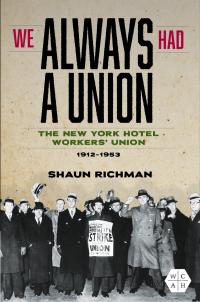
The Tribe of Black Ulysses
About the Book
The lumber industry employed more African American men than any southern economic sector outside agriculture. Yet little scholarship exists on these workers and their times.William P. Jones merges interviews with archival sources to explore black men and women's changing relationship to industrial work in the southern sawmill communities of Elizabethtown, North Carolina; Chapman, Alabama; and Bogalusa, Louisiana. By placing black lumber workers within the history of southern industrialization, Jones reveals that industrial employment was another facet of the racial segregation and political disfranchisement that defined black life in the Jim Crow South. He also examines an older tradition of southern sociology that viewed industrialization as socially disruptive and morally corrupting to African American social and cultural traditions rooted in agriculture.
About the Author
William P. Jones is a professor in the Department of History at the University of Minnesota and author of The March on Washington: Jobs, Freedom and the Forgotten History of Civil Rights.Reviews
"The best work to date on the southern lumber industry."--The Journal of Southern History"William P. Jones has written an extraordinary book that not only refutes the myth of the Black Ulysses but also restores southern black industrial workers into the foreground of southern industrialism. Equally important is his polemic argument that the southern black working class served in the vanguard of the civil rights movement. This book is a must-read for scholars of southern cultural and labor history."--Southern Historian
"The aims of The Tribe of Black Ulysses are more ambitious than a stricter and more detailed focus on trade unionism would allow. Jones's meticulous recreation of the world of southern black lumber workers successfully lays to rest the myths of Black Ulysses, leaving us with a far richer portrait."--Business History Review
"This well-written study succeeds in challenging the notion that rural black southerners were too victimized by racial oppression to adapt to modern industrial society. . . . William P. Jones navigates the perilous waters of race and class in the American South with admirable skill."--Journal of American History
"With this book, Jones joins . . . [the] leading historians of African American workers in the South who have moved African American history at the top of labor history's agenda. What makes Jones's work even more exciting, however, is his attention to the history of his subjects outside the mill and union hall. . . . Recommended for graduate students and advanced undergraduates, this book is a well-crafted and analytically sophisticated addition to a rich and growing literature on African American, southern, and working-class history."--American Historical Review
"Jones has given us a badly needed study of a neglected but extremely important group of African American workers. . . . Jones's portrait of lumber workers' struggle, first to balance agricultural and industrial work and later to enhance their collective lot through militant action, is compelling."--Left History
Blurbs
"Jones has concocted a positively daring marriage of cultural and labor history, in a way that should appeal to many readers and will, I suspect, stir up considerable controversy."--David Montgomery, Yale University










